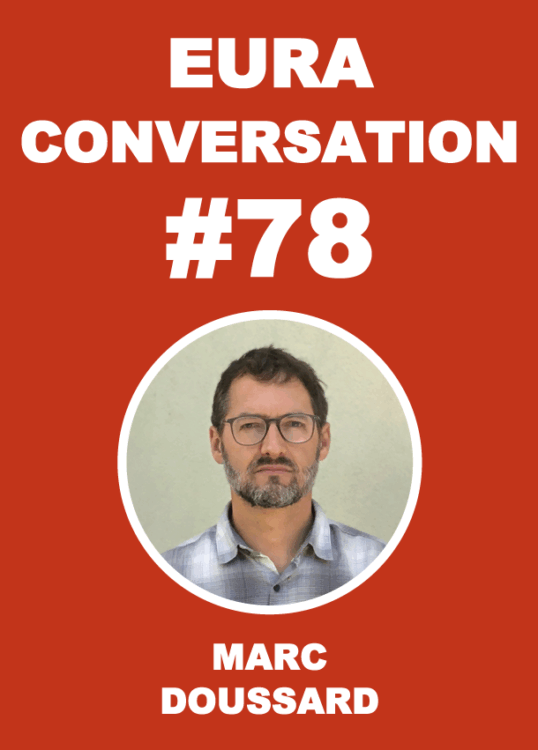
#20 Temporary uses 2
08/03/2021
#22 Greenspace under lockdown
12/04/2021Urban green space and the mental health of young people
EURA Conversations Post #21 – 22 March 2021
Isabelle Bray, Centre for Public Health and Wellbeing, University of the West of England, Bristol
Urbanisation is seen as a solution to the current environmental crisis, yet at the same time the global trend towards urbanisation is having a detrimental effect on our mental health. Young people are particularly affected by mental health concerns, and the situation has worsened during the Covid-19 pandemic.
Access to neighbourhood green space has always been especially important for those who don’t regularly move around the city or travel outside of the city, such as younger and older people. There is plenty of evidence that exposure to green environments promotes better mental health for young people. For example, relatively short ‘doses’ of 15 minutes walking in urban parks can reduce self-reported symptoms of anxiety, and walking along greener streets elicits more positive emotional reactions than walking along regular city streets. An increasing number of longitudinal studies link residential exposure to green space in childhood with longer-term improvements in adolescent mental health.
Two major pathways linking exposure to green space and improved mental health include opportunities for physical activity and social interaction, both of which are good for mental health. Physical activity in turn promotes better sleep cycles, and outdoor activities build social relationships and social cohesion. The role of neighbourhood green space in promoting outdoor exercise is particularly important for young people, who are less likely to own a car or have access to private gardens. And during recent periods of lockdown, when young people were not able to attend school, college/university or clubs, neighbourhood green space became the only place that they could meet friends.
Another important pathway is contact with nature – ‘attention restoration theory’ holds that natural environments are restorative because they engage indirect attention. While young people themselves value the restorative qualities of nature, they also recognise that it is as much what is absent as what is present in green spaces that helps them to relax and feel less stressed – the lack of traffic, noise, pollution and social media. As well as providing a refuge away from the actual noises of an urban environment, green space also psychologically reduces perceived noise. It seems that the presence of nature and absence of modern-day distractions and stressors creates a space for ‘effortless mindfulness’, resulting in benefits similar to those of yoga.
Feeling more relaxed is also likely to improve problem-solving, another route to reducing anxiety and depression for young people. Despite these multiple pathways to better mental health, there is evidence that young people under-estimate the benefits of green spaces, and therefore do not use them as often as they might to improve their mental health. We need to work with young people to understand more about how to encourage use of urban green spaces by this age group, as design tends to focus on the needs of adults and young children.
In the next EURA Conversation, Dannielle Sinnett, University of the West of England, Bristol explores changes in the use of urban green spaces before and during the Covid-19 pandemic.







